Growth in Airbnb scene raises red flags
| Published: 05-20-2017 12:14 AM |
At the Horace Kellogg Homestead Bed and Breakfast on South Pleasant Street in Amherst, visitors since its 2004 opening have had the opportunity to stay in two of the historic home’s bedrooms and enjoy a full morning meal prepared by innkeeper Susan Mallett.
Each year, the 19th century residence gets permits and undergoes a series of local inspections, at a cost of $225, to ensure food is safely handled, smoke and carbon monoxide detectors are functioning and customers can exit safely in an emergency.
But then Mallett saw a small but perceptible decline in interest in traditional B&B rooms. So, in February 2016 she took an attached studio apartment, previously a long-term student rental, and began trying her hand at using Airbnb.
She found the digital reservation platform easy and safe to use, Mallett said. “The thing I liked about Airbnb is it’s all private and very secure.”
And in the 14 months of advertising through Airbnb, Mallett’s had several guests, and is already planning ahead for two long-term renters who will be visiting Amherst in the coming weeks.
Yet, even when municipal officials came to the residence to do their traditional inspection of the B&B, they left without giving the same level of scrutiny to the Airbnb rental, she said.
Such differences in regulation have prompted some bed and breakfast proprietors, hoteliers and state and local officials to raise red flags about the rise of Airbnb, asking whether private “hosts” should pay taxes, undergo the same inspections and have the same level of public scrutiny as traditional innkeepers.
These concerns are prompting the state Legislature and Gov. Charlie Baker to unveil proposals aimed at requiring that Airbnbs remit room occupancy taxes and submit to inspections.
Article continues after...
Yesterday's Most Read Articles
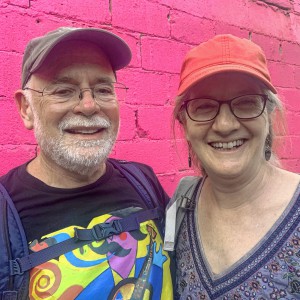 ‘Our hearts were shattered’: Moved by their work in Mexico soup kitchen, Northampton couple takes action
‘Our hearts were shattered’: Moved by their work in Mexico soup kitchen, Northampton couple takes action
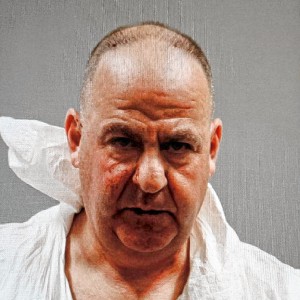 Springfield man charged with murder in Holyoke stabbing
Springfield man charged with murder in Holyoke stabbing
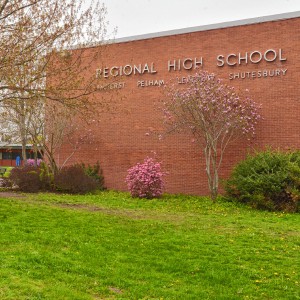 Amherst-Pelham schools look to address school absences with new plan
Amherst-Pelham schools look to address school absences with new plan
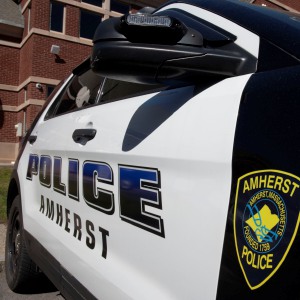 Two men dump milk, orange juice over themselves at Amherst convenience store
Two men dump milk, orange juice over themselves at Amherst convenience store
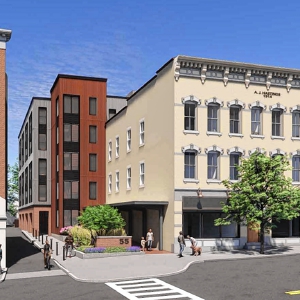 Next 5-story building cleared to rise in downtown Amherst
Next 5-story building cleared to rise in downtown Amherst
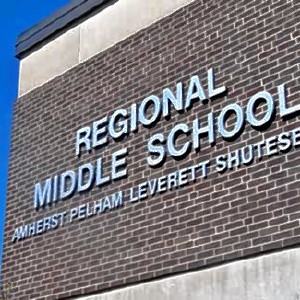 Three Amherst Regional Middle School counselors absolved of Title IX offenses
Three Amherst Regional Middle School counselors absolved of Title IX offenses
Chris Lehane, head of global policy and public affairs for Airbnb, said the San Francisco-based company is looking forward to addressing these worries with the state of Massachusetts and, as needed, municipalities such as Northampton and Amherst.
Lehane, a 1990 Amherst College graduate, said Airbnb supports efforts to have its guests pay the same tourism taxes as guests of traditional hotels and B&Bs.
“Our preference is to keep it simple and to make it broad-based,” Lehane said in a meeting with Gazette editors this week. “We want to pay our communities’ fair share of taxes.”
Airbnb already has 275 tax “partnerships” with various governmental bodies, Lehane said, in which Airbnb is authorized to collect room taxes from guests and remit them to the governments.
Lehane said he likes the idea from the State Senate Ways and Means Committee, which in its budget proposal states that a 5 percent state tax would be imposed on all rooms rented for at least $15 a night, with local governments having the option to add on up to an additional 6 percent.
Those tax rates would match what hotels and all but the smallest B&Bs currently charge their guests. Currently, B&Bs with three or fewer rooms aren’t required to levy a room tax.
Statistics provided by Airbnb show that there are 12,800 hosts in the state, renting rooms for an average of 39 nights and $6,100 income each year. In the Northampton and Amherst area, the average host collects about $8,000 per year, Lehane said.
With total income of $118 million statewide, and estimated $312 million in additional spending by the guests on restaurants and other local businesses, Airbnb says its hosts generate $430 million in economic activity each year — a figure that continues to grow.
Additional revenue from Airbnb hosts would supplement the $650,000 in yearly room occupancy taxes collected by Northampton, and the $200,000 in Amherst.
Amherst had 4,400 Airbnb guests in 2016 and total host income of $557,000, the company said. Figures for Northampton were not immediately available from Airbnb officials.
Senate President Stanley Rosenberg, D-Amherst, said estimates show the Senate Committee plan would generate $18 million in revenue for the state in the first six months.
“They definitely want the taxation,” Rosenberg said of Airbnb. “They accept reasonable regulation, but are concerned with overregulation.”
“The idea is to level the playing field and treat everyone the same,” said David Sullivan, legal counsel for Rosenberg’s office.
But how much regulation remains a topic of discussion.
Lehane and local Airbnb hosts say the online booking service provides an important source of extra income for homeowners who are working to make ends meet. Lehane noted that Airbnb takes only a 3 percent cut of room rentals, less than other online reservation services charge traditional innkeepers.
Traditional innkeepers aren’t so fond. Craig Della Penna, who runs Sugar Maple Trailside Inn bed and breakfast on Chestnut Street in Florence, said Airbnbs are a worry.
“Most real traditional bed and breakfasts don’t see them as a positive,” Della Penna said.
B&B’s, he said, are overseen not only by city and state regulations, but also through long-standing B&B associations that feature a comprehensive review process to ensure they are permitted, attractive, fun and clean places. Guests enjoy themselves so much that they sometimes want to return to the area permanently.
“As a Realtor I will get several transactions from guests who love the area so much they want to move here,” Della Penna said.
Despite getting real estate sales commissions from some Airbnb hosts, Della Penna said a “squadron” of Airbnbs is not a benefit for Northampton, and is likely undermining the appeal of “a place where tourism is king.”
“This is about making your community more worthwhile to live in,” Della Penna said of providing rooms for guests in traditional lodgings. Of Airbnbs, he said, “They’re hidden on purpose.”
While Lynda Faye has advertised her Purple Gables Bed and Breakfast on East Pleasant Street in Amherst on Airbnb, she still invites the inspections required of traditional inns and pays membership dues to professional groups.
“It’s another sign to prospective guests that we’ve passed a certain level,” Faye said. “As a consumer you don’t know what you’re getting with Airbnb, but with B&Bs it’s part of a legitimate, well-respected organization.”
But Lehane said there is no getting around the fact that many young adults prefer Airbnb to traditional rentals.
“Airbnb is how millenials want to travel,” Lehane said, citing the interactions between guests and Airbnb hosts who open their homes to travelers. “They’re looking for an authentic experience.”
Under the Senate proposal, Sullivan said it will be up to the Department of Revenue to set up a process to allow cities and towns to pass regulations for licensing and inspection.
The draft language reads that “a city or town, by ordinance or bylaw not inconsistent with this chapter, may regulate operators and impose penalties for violations of those ordinances or bylaws. An ordinance or bylaw may require registration, licensing and inspection and may regulate the existence or location of operators.”
Lehane said Airbnbs have a strong element of self-policing, with guests rating their hosts in a public way — and vice versa, which tends to encourage responsible behavior by travelers.
He said a “pass-through” registration system could also allow the company to give local officials even more specific information about the location of Airbnbs.
But he cautioned against making regulation of people who are just renting out the occasional room overly cumbersome.
“Regulations have to be consistent with the way people are living their lives,” said Lehane, adding that if the process becomes too burdensome it will turn people to the black market, using classified ads or Craigslist.
Depending on what comes out during development of the legislation, it may finally bring clarity to one of the unknowns for government officials, which is exactly how many Airbnb rooms are being rented, how the trend is impacting the conventional lodging and whether there are legitimate safety concerns.
“It’s hard to quantify the effect, but it has clearly become a large business,” said J. Curtis Shumway, president of the Hampshire Hospitality Group that operates hotels in Hadley.
Tim O’Brien, executive director of the Amherst Area Chamber of Commerce, said that it is hard to conclude whether the rise of Airbnbs is a benefit or detriment to the community.
Most of Shumway’s worries stem from whether an Airbnb rental is a safe place to stay, though he acknowledges that friends with whom he has spoken about the topic seem to think this to be a minimal problem.
“The discussions I’ve had with friends who are active with this service don’t seem to mind,” Shumway said. “Although some of my concerns exist in the hotel world as well, at least we have ways to reduce exposure to bad things.”
Municipal officials also want to promote the safety aspects.
Northampton Mayor David Narkewicz said he has heard from owners of hotels and motels and bread and breakfasts that there is a loophole allowing the 160 or so Airbnb rooms available throughout the city.
“Most people who stay in hotels or B&Bs have an expectation that there are municipal and state codes that are being followed, and that someone is regulating,” Narkewicz said.
For instance, City Health Director Merridith O’Leary said she works with traditional B&Bs so that menu items are available that meet guests’ dietary regulations.
Narkewicz said he sees health and safety issues as paramount.
“This is the way our economy is changing. We certainly don’t want to stifle that, but at the same time government has to adapt,” Narkewicz said.
Amherst Building Commissioner Robert Morra explains that a team does an annual inspection of hotels and B&Bs that it can’t do with Airbnbs.
Morra said he has limited ability to actively search for Airbnbs and that even if he knew where they were, it would be unclear if the resident was using just a room or an entire house.
“It’s called Airbnb, but you don’t know that it’s actually a bed and breakfast,” Morra said.
Even with no standard inspections of Airbnb rentals, Morra said Amherst residents are expected to comply with rules for letting out rooms and serving food, and inspectors could respond if someone files a complaint. “That’s always in play,” Morra said.
He points to a recent state Department of Public Health statement that Airbnbs are subject to the same regulations.
“We need to still figure out how to identify them and then decide if they need any other licensing,” Morra said.
Amherst Town Manager Paul Bockelman said he appreciates that Airbnb is providing more rooms for people visiting Amherst, especially at peak times such as commencements and fall foliage, and calls the share economy a new reality that communities are still adjusting to, like the rise of Uber.
“It’s certainly filling a need for people looking for venues other than a room, maybe a whole house,” Bockelman said.
But he also understands the concerns about the lack of public inspection health and fire safety.
“I think it will be useful to have the Legislature address this on a comprehensive basis,” Bockelman said.
Scott Merzbach can be reached at smerzbach@gazettenet.com.

 A Look Back: April 16
A Look Back: April 16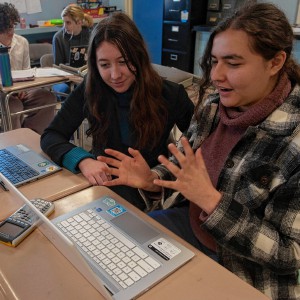 All about conviction: PVPA team wins state, heads to nationals of Mock Trial Championship
All about conviction: PVPA team wins state, heads to nationals of Mock Trial Championship
